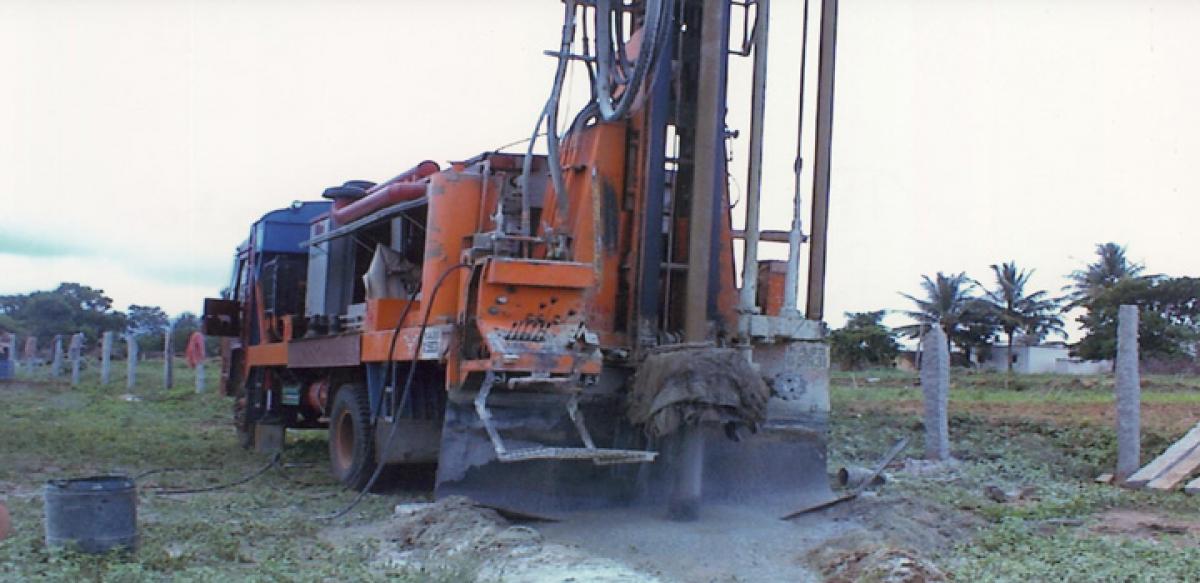Blanket ban on borewells

With the threat of hazardous chemicals looming large from deeply sunk bore wells in Telangana, the state government has issued a blanket ban on sinking fresh bore wells and prohibiting re-drilling of the existing bore wells that have either dried up or are yielding little drinking water.
Alarmed at the depleting groundwater levels, officials are worried that any further breach by bore wells beyond the 300-metre mark could end up pushing water that may contain heavy metals
Hyderabad: With the threat of hazardous chemicals looming large from deeply sunk bore wells in Telangana, the state government has issued a blanket ban on sinking fresh bore wells and prohibiting re-drilling of the existing bore wells that have either dried up or are yielding little drinking water.
Alarmed at the depleting groundwater levels in the state, officials are worried that any further breach by bore wells beyond the 300-metre mark could end up pushing water that may contain heavy metals, harmful for human and cattle consumption.
Officials said that in most of the villages that are facing severe drinking water shortage, reports have indicated that the minimum depth of new bore wells being dug in Telangana has reached the 100-m mark. At least 70 per cent of the bore wells in the state have dried up, they said.
"The state government has issued a ban on digging new bore wells in seven drought-hit districts. It has also directed officials to ensure that people are not allowed to drill deeper in to the existing bore wells , with a view to check further depletion of groundwater level," said RWS Chief Engineer RP Nanda Rao. "In the present condition, drilling new bore wells will not yield any results," the RWS chief engineer told The Hans India on Friday.
The Rural Water Supply (RWS) department stopped digging the sanctioned bore wells used for drinking water purpose by the communities in all villages and mandal headquarters. The groundwater table has reached an all-time low across the state due to a 24.2 per cent deficit rainfall. The groundwater table has depleted by 2.65 meters compared to the previous year.
"Bore wells are usually sunk between 100 and 300 metres in villages. Safety levels have been identified in all districts. If the depth is more than 300 metres, water will be polluted with heavy metals like arsenic, iron, fluoride and other nitrates which are hazardous. Nalgonda is prone to fluoride problems while districts like Mahabubnagar, Medak, Khammam, Nizamabad, Karimangar, Adilabad and Warangal are facing the threat of increasing levels of toxicity.
Officials said that nearly 1000 bore wells sanctioned in drought-hit villages to quench the thirst of local people would not be dug till the water table increases to safe levels. As an alternative, the RWS department is drawing water from agricultural pumpsets and supplying to locals. It is estimated that nearly 50,000 bore wells were supplying water in 8,000 gram panchayats in the state.
The official said that the ban has also been extended to digging of individual bore wells for domestic as well as commercial needs. However, permissions would be granted to those who have submitted a certificate from hydro-geological experts to dig fresh bore wells or deepen the existing wells depending on need and urgency.










